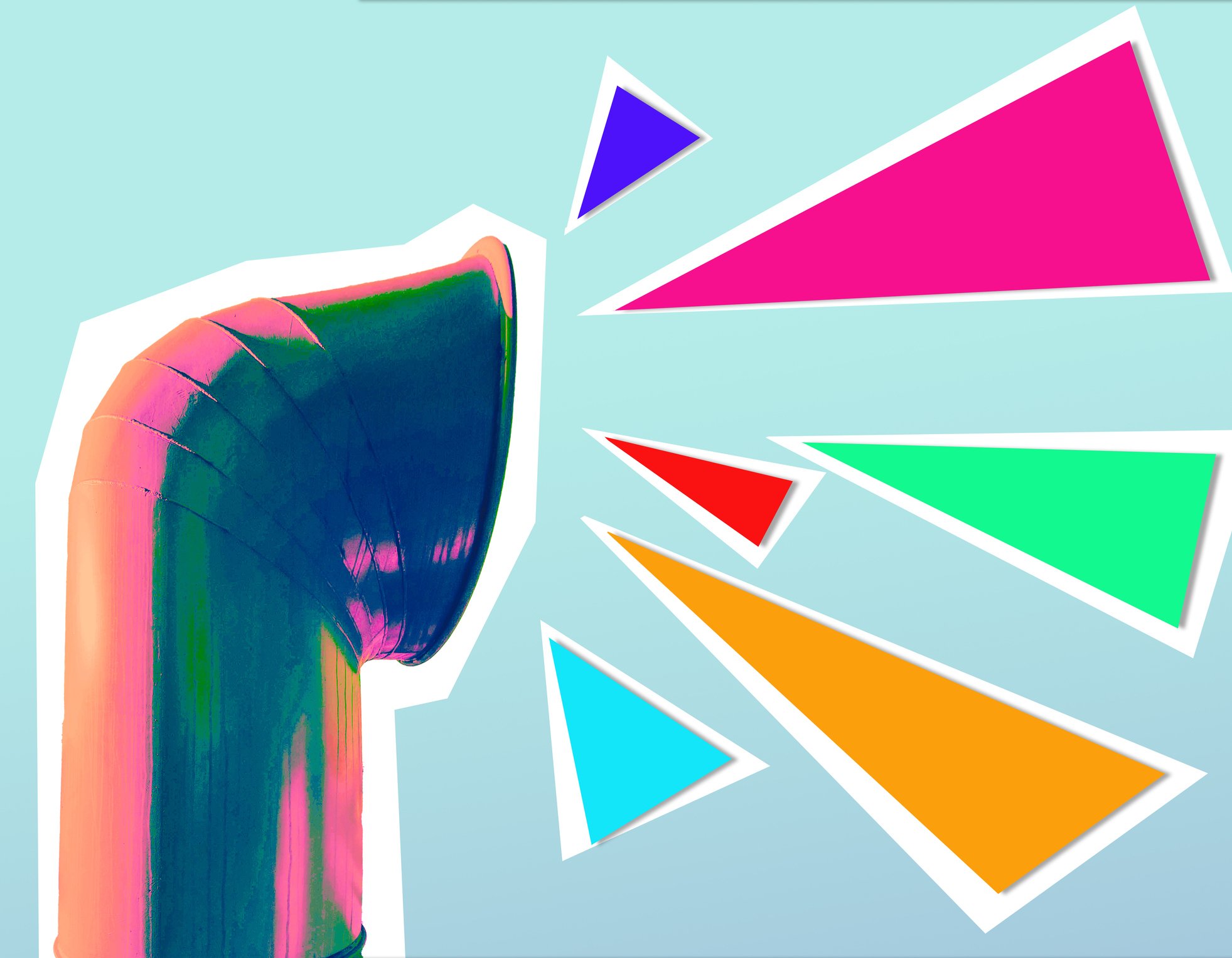How TikTok became a place for tattletales

“I hate to stick my nose where it doesn’t belong but if your name is Marissa, please listen up,” begins one TikTok with 15.7 million views. “I just walked by your friends and I need to tell you that the weekend you’re away is not the only time that they could do their birthday party. They are choosing to do it the weekend you’re away and you need to know.”
The video ends with a call to action: “TikTok, help me find Marissa.” TikTok found Marissa and she ended up dumping her friends. While this story has a happy ending — Marissa went on to create an Instagram account with the handle @nomorelonelyfriends, which connects people who have bad friends and organises meetups — it raises the question, is TikTok turning us into a bunch of tattletales?
The upside of gossip
We are all guilty of gossiping, perhaps during pillow talk with your partner, by the watercooler at work, or on the phone with your mum. If you say you have never gossiped, I don’t believe you. What happens when our private conversations are made public? In an age when people are filmed in public without their consent, the line between public and private is becoming increasingly blurred. But, how would you feel if a stranger recorded and posted these conversations online, inspiring an internet-wide manhunt against you?
“I love my friends dearly, but sometimes they might do something that annoys or upsets me and I need somewhere and someone to rant about it with.”
A few of these trials-by-social-media have gone viral recently. One TikTok user rallied their followers to locate Sarah, a young woman whose friends were discussing a “sleazy” outfit she wore to an event. Another enlisted their audience to seek out a bride whose bridesmaids were unhappy with their dresses. The driving force behind these gossip vigilantes is the idea that the subject of the gossip — the gossipee — has a right to know what their friends are saying about them behind their back. But do they? If so, is it the job of the internet to administer this justice?
“I love my friends dearly,” explains Beth, 23, “but sometimes they might do something that annoys or upsets me and I need somewhere and someone to rant about it with. If it’s important enough then of course I will bring it up with the friend in question rather than say it behind their back, but sometimes it’s not worth the drama and once it’s off my chest I feel much better and can move on from the issue.”
Gossip is good for us. Or at least, it is a natural leftover from our evolutionary past. The concept was originally introduced by evolutionary psychologist Robin Dunbar, who drew a parallel between gossip and the grooming behaviour observed in primates as a means of social bonding. In a study published earlier this year in the journal Social Psychological and Personality Science, 467 adults wore electronic recorders over the course of two to five days, which collected samples of their verbal conversations over that time period. The data showed that nearly everyone in the study gossiped (only 34 individuals out of the 467 did not gossip at all).
“Gossip gets a bad rap, mostly because people only focus on the negative, selfish and vicious examples of gossip,” says Francis McAndrew, professor of psychology at Knox College. “We also tend to think of it as something that other people do. If we, ourselves, are talking about someone, we usually think of it as ‘expressing concern’ or ‘sharing important information’ rather than gossiping.”
Want more sex and dating stories in your inbox? Sign up for Mashable’s new weekly After Dark newsletter.
“I think it’s a natural part of being in a friendship that you’re going to have your own opinions and judgements on someone and the things they do,” says Al, 28. “As long as you’re not being mean-spirited or misrepresenting the person, I don’t think it’s that bad. I’d be surprised if my friends had never said anything about me behind my back, but that doesn’t mean I want to find out about it on the internet.”
In the 2023 study most gossip was coded as neither positive or negative — the majority of gossip (75 percent) was neutral. Sure, some types of gossip, such as rumour-spreading or character assassination, can be bad. Most of the time, however, it is not so much the subject of the gossip that is important, but the act of gossiping itself.
Study after study has proven the positive effects of gossip, like how it can promote cooperation, encourage positive behaviour, and be a crucial social skill. Researchers say that gossip doesn’t always deserve its bad reputation. “Most gossip is not negative, and it actually can do a lot of good,” adds McAndrew. “It can be a way of keeping people in line and making them be good citizens. For example, if we are tempted to slack off at work and let others do more than their fair share, knowing that other people will gossip about this and judge us accordingly may make us do the right thing. Sharing gossip can also be a sign of trust and a way to build cohesiveness and camaraderie in the workplace.”
Now that’s not to say people should be trash-talking their friends, but the bar could definitely be raised for when it’s okay to film someone without their permission and upload it to the internet for millions to see. Invading someone’s privacy in this way is usually far more morally-dubious than whatever is being filmed.
Consequences of social media surveillance
Whether it be private conversations or clips of strangers, social platforms have made us perceive other people as potential viral fodder. Since we are consistently searching our own lives for material, it’s only natural that we regard the lives of strangers as fair game. “You can think about it as justice or you can think about it as entertainment,” says Ben Marder, senior lecturer at the University of Edinburgh Business School. “For the poster, of course, I’m sure there’s some vigilante motivations but there’s also extrinsic motivations as well — the motivation to get more followers.”
“TikTok is a relatively anonymous place compared to other social media.”
By recording and sharing these conversations, these gossip vigilantes might not only be potentially distorting these private discussions without the full context of the story but also have taken localised gossip at the expense of the people being recorded and broadcasted it far beyond its intended audience.
“TikTok is a relatively anonymous place compared to other social media,” explains Marder. “Especially compared to platforms like Facebook, where your real name and real photos are used. People feel a little bit protected by the crowd and, as in a general crowd mentality, they’re quite happy to follow the leader, often without asking too many questions.”
This isn’t a new issue at all. Since the mass adoption of smartphones people have been secretly filmed and had their videos spread all over the internet. However, TikTok’s powerful algorithm makes it more likely for a video to blow up and for the person who’s unknowingly recorded to stumble upon it when it shows up on their For You Page.
This in turn, has real-life consequences. “The more this surveillance occurs, with people recording things in real life and uploading it to social media,” explains Marder, “the more we become constrained in our behaviour in reality.”
While gossip may not be inherently good, it is neither inherently bad. What is bad, however, is finding out your friends hate you through a TikTok video with hundreds or thousands of views. One thing we learn when we are young is that no one likes a tattletale. The tattletale is not entertaining. The tattletale isn’t fun to be around. The internet would do well to remember this.

